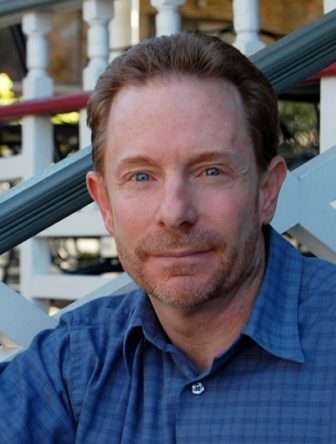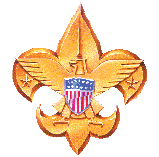 First, the scout leaders befriended the boys, then mentored them … and ultimately, molested them.
First, the scout leaders befriended the boys, then mentored them … and ultimately, molested them.
And then, all too often, the scout leaders simply moved on to other troops and molested other scouts, continuing the sad cycle of sexual abuse within the Boy Scouts of America.
In his book “Scout’s Honor: Sexual Abuse in America’s Most Trusted Institution,” author Patrick Boyle chronicles widespread abuse and how the Boy Scouts routinely ignored it, tried to keep it quiet or minimized it. Originally published in 1994 and now out in a newly updated Kindle edition, the book is based on exhaustive research by Boyle, a former Youth Today editor. He scrutinized thousands of the once-secret “confidential files” that courts ordered the Boy Scouts to release, detailing decades of sexual abuse in the Scouts.
Boyle, 54, also conducted in-depth interviews with eight former scout leaders convicted of molesting boys, as well as with sexual abuse victims, scout leaders, parents, law enforcement officials, and pedophilia experts.
The result is a book that should be required reading for parents and leaders of youth organizations. “Scout’s Honor” provides a detailed look at disturbing patterns of behavior not only among the molesters but also the Boy Scouts’ national leadership.
Youth Today spoke with Boyle, a national expert on sexual abuse in the Boy Scouts, Excerpts of the hour-long interview follow.
The Interview
Editor’s note: For the record, Boyle responds to two frequently asked questions: He wasn’t molested as a child and he was not a Boy Scout. His parents signed him up for Cub Scouts, but he never attended a meeting. A father of three, Boyle has a son, now 16, who chose not to become a Scout.
Youth Today: What time period does “Scout’s Honor” cover?
Boyle: It covers abuse in scouting from the 1970s to now [the revised Kindle edition], but goes back a century to look at how scouting and American society at large responded to the abuse of boys by men throughout the 1900s.
Youth Today: Did the Boy Scouts’ leadership try to sweep child abuse under the rug?
Boyle: Oh, sure. The Boys Scouts’ reaction was just like any other corporation, which is protect the organization first, basically to deny that there was a problem and if there was a problem, to minimize the problem – minimize it by saying it doesn’t happen a whole lot, and anybody who wants to make a big deal about it just hates the Boy Scouts. For a lot of charities, the defense mechanism is to both minimize and to also shield themselves with the great work that they are doing.
People carrying out the Boy Scout program around the country didn’t have access to these [confidential files kept at Scout headquarters]. They didn’t know there were a couple hundred abuse cases in any given year. [Scout leadership] kept their own people blind to the problem and then basically acted to protect the organization first. That was the instinct. And that meant letting guys go without charges. That meant convincing reporters it was an aberrant story. That meant convincing the cops not to tell the press about stuff. Well into the ‘80s they were doing that.
Youth Today: Based on your review of the confidential files and your interviews with the molesters, what did you learn about their patterns of behavior?
Boyle: The patterns of abuse become immediately clear. There are certain things that continue to happen – for instance, the fact that they use the very structure of the Boy Scouts to their advantage, the fact that abuse occurred during campouts when they were alone with kids, the fact that a lot of the abuse occurred at the Scouts’ homes, all under the guise of Scout activity like merit badge counseling, you know that kind of thing, the fact that they all had befriended the child and the families. They became a real mentor. They preyed on vulnerable kids, especially with single moms, which is ironic because the Scouts had long pitched itself as a place for the single moms to send their fatherless boys to have strong role models, which is a very good pitch.
Often, these guys would move from troop to troop. [The Boy Scouts] would kick them out but not charge them with a crime. I mean, every year you’d see this happening.
Youth Today: How has the public reacted to “Scout’s Honor?”
Boyle: The book didn’t take off like I expected, but what happened was the book remained a cornerstone for what eventually became a sex abuse scandal. It served as kind of a cornerstone for journalists who were doing their own stories, and they’d find the book and call me. It served as a cornerstone for lawyers who were suing, and then they’d find it and they’d learn all about Scouts and sex abuse and about the confidential files. And because of that, it led to the release of other documents, other files that raised public awareness.
Youth Today: What factors contributed to the Boy Scouts sexual abuse scandal exploding in 2010 during the case in which an Oregon jury awarded a sexual abuse victim $18.5 million in punitive damages?
Boyle: By the time the Oregon trial hit in 2010, the world was significantly different in two key ways [compared with 1994], one of which is the Internet, because now all this information suddenly grew viral, and the trial was televised so you had the phenomenon of people tuning in, spreading the word, commenting live. And it just took off and became this national story, and I always thought it would become a national story. The Catholic Church scandal [also] really opened up the door for public discussions about institutional sex abuse and [people realized], “Yes, this happens, it happens in good institutions and good institutions could do bad things, and we have to pay attention to how these [molesters] operate in organizations for youth.” And so that kind of primed the pump, so to speak, in terms of journalistic interest and public interest.
Youth Today: What can parents do to try to ensure their children do not become victims of sexual abuse?
Boyle: You’ve got to keep your eyes open. I tell parents one of the main things is ask questions, meaning you should be asking what kind of background checks are being done on the people who work with your kids. Don’t be shy about that. Outwardly, these [molesters] can lead perfectly normal lives with wives and kids. This isn’t like a drug addict who you notice is having problems at work. And this isn’t like a guy who’s violent and you find out that he’s been charged with assault after he went out and drank at a bar and beat up his wife. These guys can keep this crime really quiet from everybody, including their own families.
Recognize that there’s always a risk that somebody’s going to get involved in a youth group for the wrong reasons and so you have to keep your eyes open, and the best thing you can do is be involved with your kid and be involved with the group.
And you have to ask your child where they’re going and what they’re doing and do not be shy about knowing that even as they get older because a lot of these parents didn’t know that the kids were spending so much time with their scoutmasters. There are a lot of kids in the big Scout files where kids were spending what anybody would consider a ridiculous amount of time with a grown-up who they’re not related to in the guy’s house, going on trips with him. Sometimes, the parents let the guy do this, which is amazing in itself, but I think parents might know better now. But a lot of times, the parents were shocked to find out how much time their kid was spending with this adult and said, “If I had known this, I would have been suspicious.”
When I did this book, I didn’t have kids. Doing this kind of work really informed my outlook as a parent. I learned a lot about how to handle kids and how to look out for things. I didn’t become a parent till I was 36 and by that point, I had a really good sense of not only dangers but also, quite frankly, the way that certain kinds of molesters relate to kids better than their parents do. People have a hard time hearing this: If you strip away the ghastliness of this crime, you can actually learn a lot about dealing with children by listening to certain child molesters. These guys are very good at connecting with kids. It doesn’t mean every parent wants to treat their kid like their best buddy, which is what molesters do. But a lot of these guys are much better than a lot of parents at listening to kids and really listening and giving them the kind of space they need and also recognizing when a kid needs talking and when he needs space.
Youth Today: Did the molesters you interviewed acknowledge that they had done great harm to their victims?
Boyle: They didn’t feel guilty about it at all at first because they justified it in their minds. Even when they recognize it’s wrong, they have trouble staying away. These are generally guys who mean well and really do like children. These guys have an addictive behavior that is really like a lot of other addictive behaviors. They are really almost pathetic in certain ways because they’re not in control of this demon they have. Eventually, they came to realize [their behavior] was doing incredible harm to children and it would make them break down and cry.
Youth Today: Has the Boy Scouts’ handling of sexual abuse allegations improved since the publication of the first edition of “Scout’s Honor?”
Boyle: Yeah, I have to say this: The new regime of the Boy Scouts seems to be taking this very seriously today, which is not to say that they never took it seriously before. For a long time, the Boy Scouts did the minimum they had to do to show that they were doing something. And the lawsuits and the publicity combined up to a point where they had to start trying to do the maximum, to start going well above and beyond what they had to do, and it seems to me that they’re sort of trying to do that now. But they were forced to. Say what you want about litigation and lawsuits and the press, but the fact is the lawsuits and the publicity changed the Boy Scouts just like they changed the Catholic church. And that’s sometimes what it takes.
Youth Today: Do you plan to follow up with another book?
Boyle: The book I’m trying to do now, the book I’ve been outlining, is really looking at abuse across institutions and connecting the dots. I think that we really need to look at the patterns of abuse and institutional behavior that lets abuse occur. My theory here is that a lot of very good institutions have inadvertently enabled child molesters, and there are reasons they’ve done that. They didn’t set out to do that.
But if you look at all these cases – the Boy Scouts, you look at the Catholic church, you look at the sports leagues where they’ve had problems with this, you look at the schools, you look at a lot of religious organizations, including a lot of Jewish communities, Jehovah’s Witnesses, you see very similar patterns of organizational and individual behavior. How is it that good organizations let such a horrible thing happen and let it continue to happen? It’s amazing how much some of these scandals mirror the Scouts. To me, it’s organizational behavior. I really want to talk to the adults who are involved in making decisions. [And] I will talk to victims but we have to learn from the molesters. I’m sorry. You’ve got to talk to child molesters and you’ve got to try to pry out of these guys the behavior patterns to help you protect yourself.
I expect [the book] to be a bigger-picture look at basically what organizations think and how they fail – how organizations fail and how organizations can protect themselves and their kids better.
The Details
Patrick Boyle is a veteran journalist whose reports on child abuse, mental illness, and drug addiction have won awards from the Society of Professional Journalists, the National Headliner Awards, the Missouri School of Journalism, and others. He has been a reporter for many newspapers, including the Washington Times, and a freelance reporter for the New York Times, ABC News, Woman’s Day, Spy, and the American Journalism Review.
Read his article for Youth Today, “Boy Scout Confidential.”






























